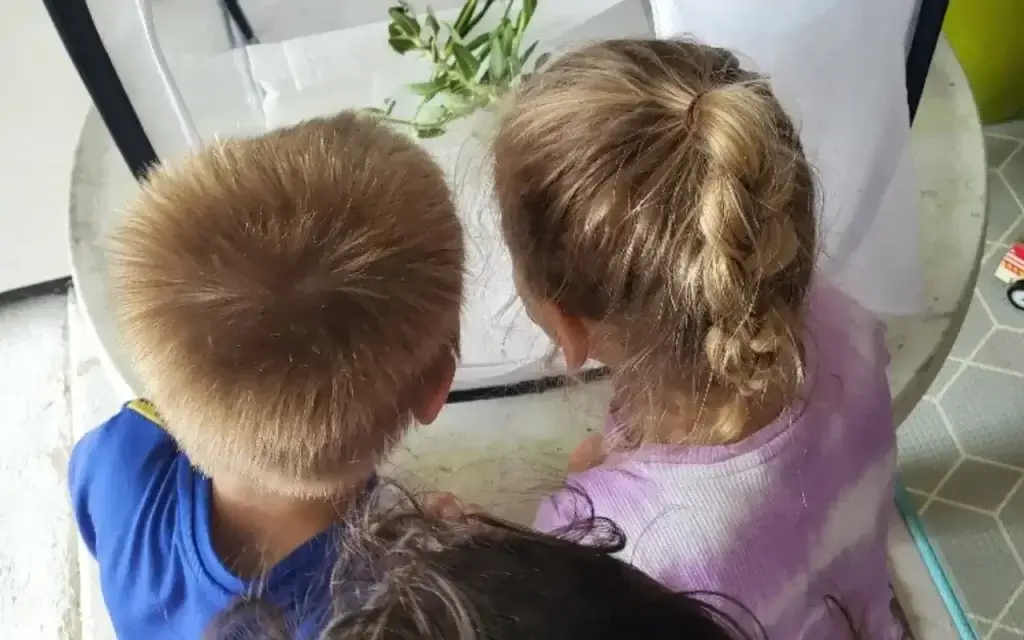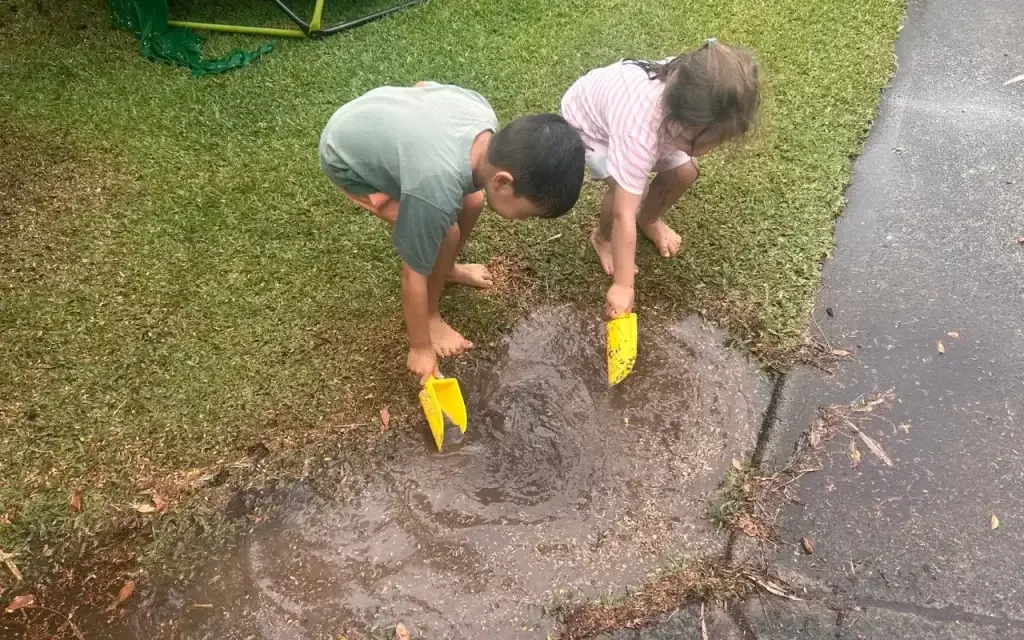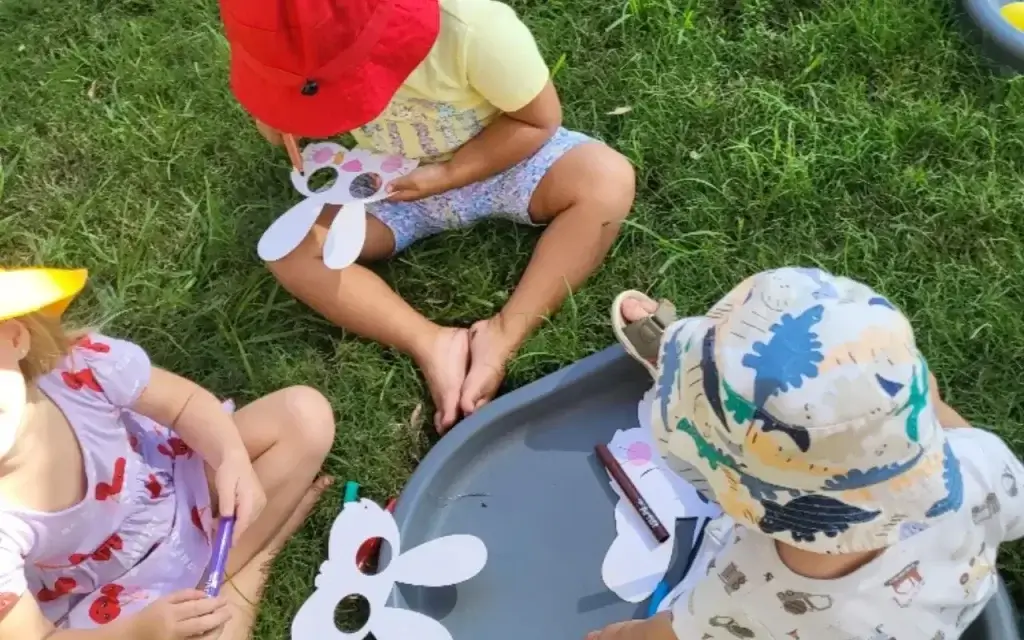Preschool is often a child’s first structured educational experience outside of the home. It’s a place full of exploration, play, and wonder—but it’s also where vital early learning begins. At first glance, it may look like the children are simply playing with toys, finger painting, or singing songs, but each activity is thoughtfully designed to teach them something important. Preschool lays the foundation for academic, social, emotional, and physical development.
In this blog, we’ll explore the wide range of things children learn in preschool and why it plays such a critical role in their overall development. Whether you’re a parent deciding when to enroll your child or simply curious about the benefits, this guide will walk you through everything you need to know.
Building Social and Emotional Skills

One of the most valuable things children learn in preschool is how to interact with others. This may include taking turns, sharing toys, resolving conflicts, and expressing their emotions in healthy ways. Social development at this age is crucial because it prepares children for the complex social world they will encounter in school and beyond.
Preschoolers also begin to understand empathy, cooperation, and the importance of respecting others’ feelings. These emotional skills are nurtured through guided group activities, free play, and teacher-facilitated discussions.
Language and Communication
Preschool provides the ideal setting to develop language and communication skills. Children learn new vocabulary every day, not only from books and stories but also through talking with teachers and classmates.
They also begin to understand sentence structure, pronunciation, and expressive language. Storytime, music, and group discussions encourage them to articulate their thoughts and feelings, which boosts both confidence and communication skills.
At Wynnum Family Day Care, we encourage children to express themselves freely while introducing them to books, rhymes, and language-rich activities that support their growing vocabulary and comprehension. We believe every child deserves the chance to find their voice in a nurturing and safe space.
Early Literacy and Numeracy Concepts
Academic learning begins long before formal schooling starts. Preschool introduces foundational literacy and numeracy concepts in a fun and age-appropriate way. This includes:
- Recognizing letters and numbers
- Identifying shapes and colors
- Learning to count
- Developing fine motor skills needed for writing
Activities such as matching games, alphabet puzzles, storytelling, and singalongs all contribute to building early literacy and math skills. Teachers use repetition, songs, visual aids, and play-based learning to make these abstract concepts accessible and enjoyable for young learners.
LEARN HOW WE PROVIDE HOLISTIC FAMILY DAYCARE SUPPORT
Creativity and Self-Expression
Creative play is a vital component of preschool learning. It’s not just about keeping kids entertained—it helps them think critically, solve problems, and explore their emotions. Through art, music, dance, and imaginative play, children get to express themselves in unique and meaningful ways.
Engaging in bold, hands-on projects like painting and crafting stimulates the brain while developing fine motor skills. If you’re looking for fun ways to bring out your toddler’s inner artist at home, check out our guide on Simple and Easy Art Projects That Toddlers Will Love.
Creative exploration supports cognitive flexibility and helps children become confident decision-makers—a skill that will benefit them in all areas of life.
Physical Development and Coordination
Preschool also plays a big role in developing both fine and gross motor skills. From cutting paper with scissors to jumping in place, children engage in activities that enhance their coordination, balance, and physical strength.
Gross motor activities include running, climbing, dancing, and playing with balls. These help with muscle development and spatial awareness. Fine motor activities—like stringing beads, stacking blocks, or using tweezers—prepare children for tasks such as writing and buttoning clothing.
Physical movement is integrated into daily preschool routines, ensuring that children stay active and healthy while having fun.
Independence and Responsibility
Preschool introduces children to basic responsibilities and routines, like packing up toys, washing hands before meals, or taking care of personal belongings. These experiences teach independence and self-regulation.
Teachers guide children to follow simple instructions, make choices, and complete small tasks on their own. These seemingly minor responsibilities boost a child’s self-esteem and help them develop important life skills.
They also learn the value of consistency and routine—elements that contribute to a secure and predictable learning environment. Learn more about this topic in our detailed blog, Impact of the Learning Environment in Early Childhood Education.
Cognitive Skills and Problem Solving
Critical thinking and problem-solving abilities are built from the ground up in preschool. Activities that challenge kids to think, sort, compare, and predict help build strong cognitive skills.
Children might be given puzzles to complete, sorting games to try, or basic science experiments to explore. These activities introduce logical thinking, curiosity, and cause-and-effect relationships.
As they work through tasks and challenges, they develop resilience and a willingness to try again—key ingredients for future academic success.
Environmental Awareness and Community Values
Another emerging area of learning in modern preschools is environmental awareness. Many programs now incorporate sustainability and nature-based learning into their curriculums.
Preschoolers are naturally curious about the world around them, and learning to care for the environment at an early age fosters respect for nature and a sense of global citizenship. Activities like planting seeds, nature walks, and recycling exercises help build these values.
If you’re interested in fun, engaging ways to teach kids about sustainability, take a look at our blog on Recycling Activities for Preschoolers. These activities can be both educational and enjoyable while instilling lifelong eco-friendly habits.
LEARN HOW WE NURTURE YOUNG MINDS AT WYNNUM FAMILY DAY CARE
Preparation for Primary School
Ultimately, one of the primary goals of preschool is to prepare children for the transition to formal education. This involves more than just academics—it’s about developing the confidence, adaptability, and emotional resilience needed to thrive in a classroom setting.
Children who attend preschool are typically more prepared for the structure of kindergarten. They’re familiar with routines, social dynamics, and learning expectations, which gives them a head start both socially and academically.
Learning Through Play
It’s important to remember that much of the learning in preschool happens through play. This isn’t accidental—it’s based on decades of research that shows children learn best when they’re engaged, motivated, and having fun.
Play encourages exploration, imagination, experimentation, and discovery. Whether it’s building with blocks, pretending to cook, or engaging in group games, play allows children to apply what they’re learning in real-world scenarios.
It is through this balance of structured learning and open-ended play that children develop into confident, curious, and capable learners.
A Lasting Impact
Preschool may only last a couple of years, but the impact lasts a lifetime. The skills, habits, and knowledge children gain in these formative years set the tone for their future learning and development.
At Wynnum Family Day Care, we’re proud to be part of this important journey. We provide a nurturing, inclusive, and enriching environment where every child can flourish. Our programs are thoughtfully designed to balance play and learning while supporting each child’s unique path of development.
If you’re looking for a safe and engaging early childhood education provider in the Wynnum area, we invite you to learn more about how we can support your family.
KNOW WHAT PARENTS SHOULD KNOW ABOUT THE EARLY CHILDHOOD EDUCATION
Why Preschool Matters More Than You Think
Preschool is a time of tremendous growth and discovery. From emotional development and social skills to early literacy, problem-solving, and environmental awareness, it provides a strong and lasting foundation for lifelong learning.
For parents, understanding what your child is gaining from their preschool experience can give you peace of mind—and inspiration for extending learning at home. Whether through creative activities, structured play, or simply talking about your child’s day, every interaction helps reinforce what they’re learning in the classroom.
To explore more ideas on how to support your preschooler’s development, don’t forget to read our related blog posts, including Simple and Easy Art Projects That Toddlers Will Love, Impact of the Learning Environment in Early Childhood Education, and Recycling Activities for Preschoolers.
CONTACT US FOR WYNNUM FAMILY DAY CARE AND EDUCATION SERVICE DETAILS



